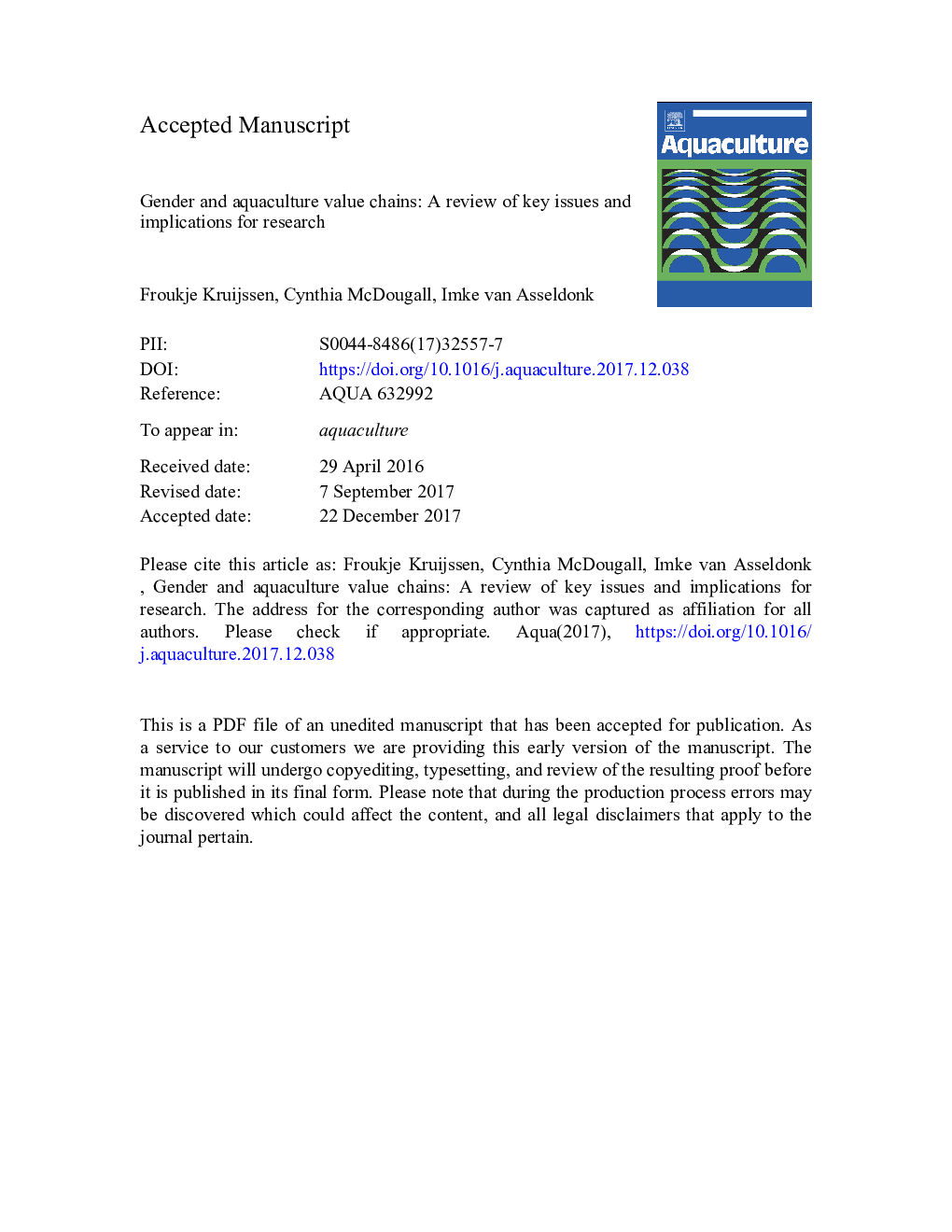| Article ID | Journal | Published Year | Pages | File Type |
|---|---|---|---|---|
| 8493158 | Aquaculture | 2018 | 24 Pages |
Abstract
Although aquaculture is the fastest growing food producing sector in the world and generates significant employment opportunities at multiple scales, men and women are not necessarily able to participate in aquaculture value chains in the same way, and benefits may not be evenly distributed between them. This paper aims to elucidate current knowledge of gendered engagement in and returns from aquaculture value chains. It does so by presenting a review of existing evidence on gender issues in aquaculture value chains along five key dimensions: gender division of labor, distribution of benefits, access and control over assets and resources, gender and social norms, power relations and governance. Subsequently, the potential results for value chain performance and potential upgrading pathways are presented. The review shows that there is limited high quality sex-disaggregated data regarding aquaculture value chains, in particular related to the distribution of benefits in the chain. It also shows that evidence is limited regarding other aspects of the quality of women's participation in and returns from these chains. Existing evidence, however, indicates gendered imbalances in all five dimensions assessed, with formal and informal barriers, including gender norms, limiting women's equal engagement and returns. The specifics were found to vary by context and to be shaped in relation to factors such as class, needs, and social and religious norms. The impact of gender inequity on value chain performance was also found to be an area of literature for which evidence is still limited. While the upgrading pathways as described in the literature may result in economic upgrading, they may have limited effect on improving inequity or social conditions in the chain, if they do not take underlying inequities in institutions into account. Together the evidence indicates the need for research to elucidate practical ways to increase women's engagement in and returns from aquaculture value chains through addressing formal and informal barriers to women's control over assets, including shifting underlying gender norms and relations towards gender equality.
Related Topics
Life Sciences
Agricultural and Biological Sciences
Aquatic Science
Authors
Froukje Kruijssen, Cynthia L. McDougall, Imke J.M. van Asseldonk,
